Continuing Education
Continuing Education
This section brings together free in-depth Continuing Education resources for the Professional community concerned with trauma.
Addressing Complexity: Treating PTSD When Dissociation and Somatization Are Present
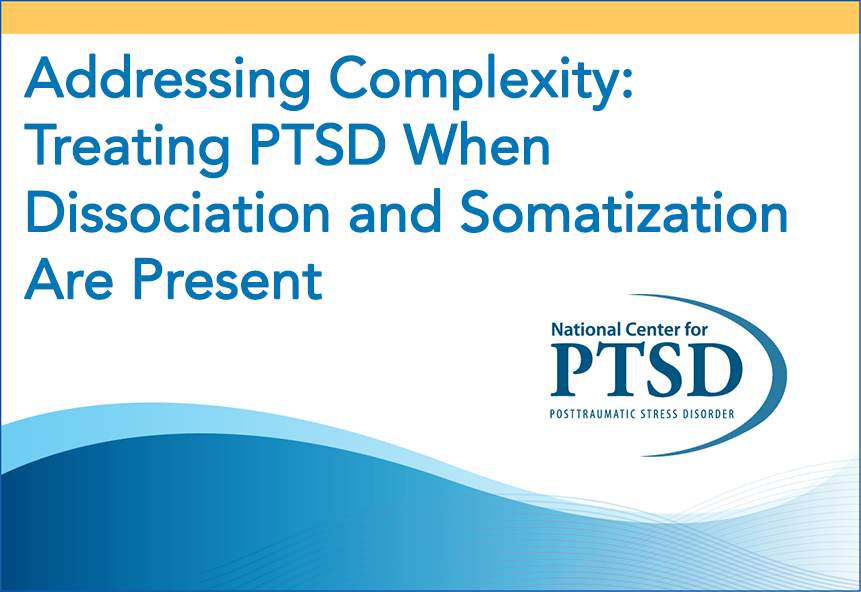
- Date Created: 07/09/2025
- Time to Complete: 1 hour
- Credits: ACCME, ANCC, NBCC, APA, ASWB, Other Orgs
- Skill Level: Intermediate
- Course Series: PTSD 101, PTSD Consultation Lecture Series
Complex presentations of PTSD may include dissociation and somatization. Such complexities may lead both clinicians and patients to hesitate to engage in an evidence-based treatment for PTSD as recommended by clinical practice guidelines.
This course will help clinicians to identify and conceptualize dissociation and somatization presentations as trauma reactions within a PTSD case conceptualization framework. The authors share measurement tools to encourage assessment and diagnosis and review clinical suggestions to support first-line and second-line evidence-based PTSD treatment for Veterans with these complex presentations.
View Course Details »Avoiding Avoidance in PTSD Treatment: How to Stop Colluding and Promote New Learning with Compassion
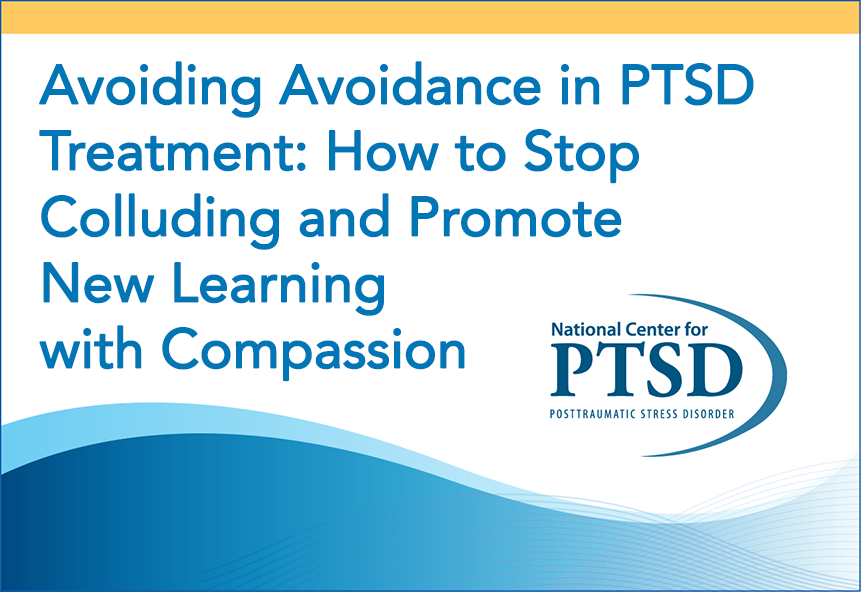
- Date Created: 07/03/2025
- Time to Complete: 1 hour
- Credits: ACCME, ANCC, NBCC, APA, ASWB, Other Orgs
- Skill Level: Intermediate
- Course Series: PTSD 101, PTSD Consultation Lecture Series
Avoidance plays a critical role in PTSD, highlighting the importance of addressing this maintenance mechanism within psychotherapy. Additionally, it may be plausible that problematic avoidance occurs within systems, interpersonal relationships, and therapeutic contexts, as well as at the patient level.
This online course provides an overview of PTSD symptoms, with particular emphasis on the centrality of avoidance behaviors through a Prolonged Exposure (PE) perspective. The author describes how avoidance can manifest in both passive and active forms, using examples, and explores how complicity with avoidance can hinder recovery and perpetuate avoidance patterns.
View Course Details »Treatment Considerations for PTSD in Those with History of Concussion
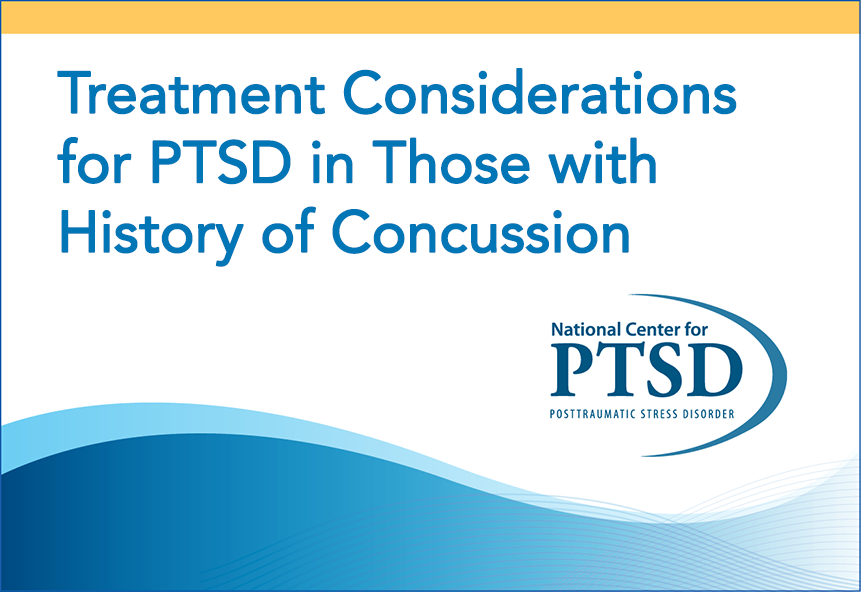
- Date Created: 07/03/2025
- Time to Complete: 1 hour
- Credits: ACCME, ANCC, NBCC, APA, ASWB, Other Orgs
- Skill Level: Intermediate
- Course Series: PTSD 101, PTSD Consultation Lecture Series
The VA/DoD Clinical Practice Guideline for PTSD supports good tolerance and efficacy for trauma-focused therapies in those with comorbid history of mild traumatic brain injury (mTBI). Some helpful considerations and modifications may optimize outcomes.
This course reviews research that supports the use of evidence-based trauma-focused therapy for patients with PTSD who have experienced a TBI. The author discusses ways to integrate compensatory cognitive rehabilitation strategies into PTSD treatment. Information about SMART-CPT strategies and other clinical applications are shared.
View Course Details »State of the Science for Written Exposure Therapy
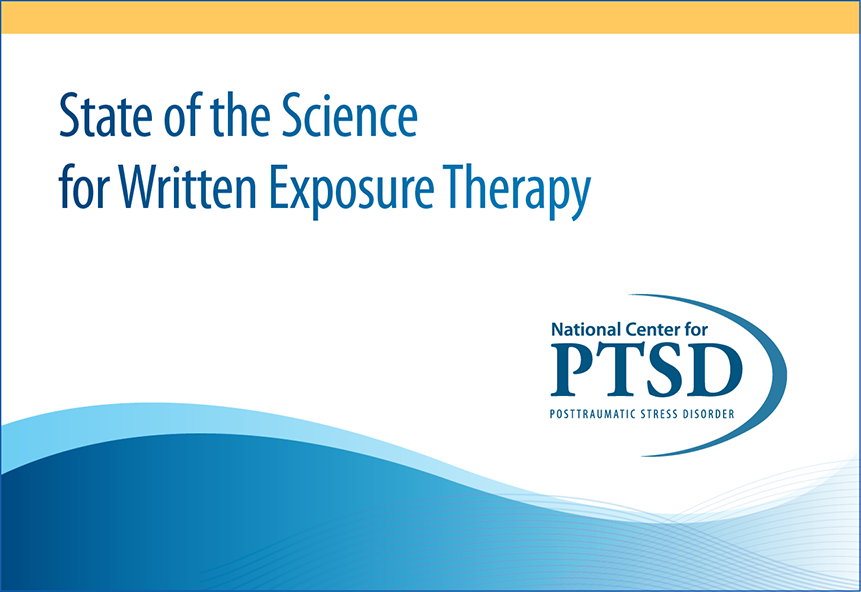
- Date Created: 02/ 6/2025
- Time to Complete: 1 hour
- Credits: ANCC, APA, ASWB, ACCME, NBCC, Other Orgs
- Skill Level: Intermediate
- Course Series: PTSD 101, PTSD Consultation Lecture Series
Written Exposure Therapy (WET) is a manualized trauma-focused evidence-based psychotherapy for PTSD. WET was developed as a brief, more tolerable treatment that is easily trained and disseminated to clinicians who work with PTSD patients. Due to its brevity (5 sessions) and flexibility, it can be used in a variety of clinical settings.
This online course provides information about the development of WET, the evidence showing its effectiveness, and how to implement the treatment in clinical practice.
View Course Details »Providing PTSD Care at End of Life
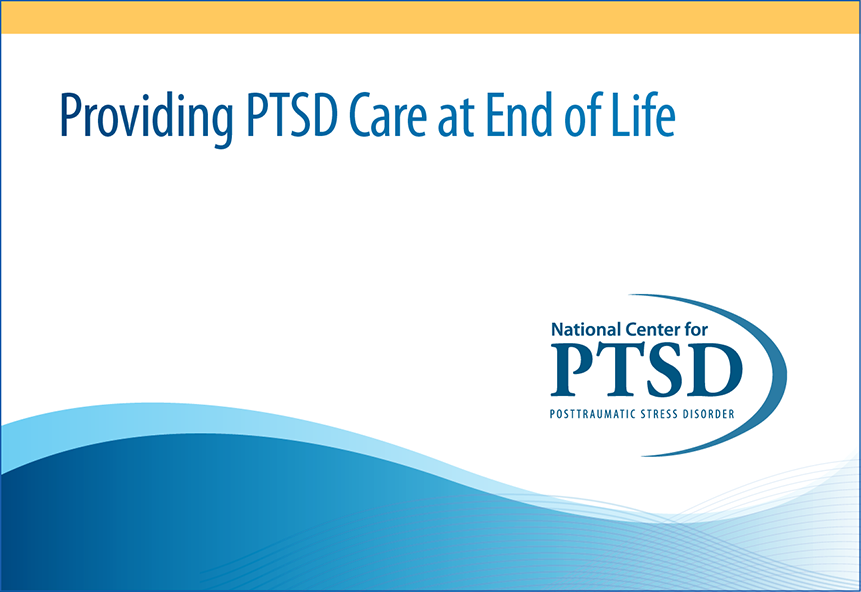
- Date Created: 02/ 6/2025
- Time to Complete: 1 hour
- Credits: ANCC, APA, ASWB, ACCME, NBCC, Other Orgs
- Skill Level: Intermediate
- Course Series: PTSD 101, PTSD Consultation Lecture Series
End-of-life care, often delivered in palliative or hospice settings, helps patients have a death that involves minimal pain and suffering as well as optimal emotional well-being and quality of life. For patients with pre-existing PTSD, chronic symptoms, or a flare of symptoms during EOL can complicate the dying process for patients and their loved ones.
This online course for interprofessional health care teams will help clinicians working with patients at EOL to think through how PTSD may present at end of life, and how they may assess for and help patients address PTSD in this unique context.
View Course Details »























